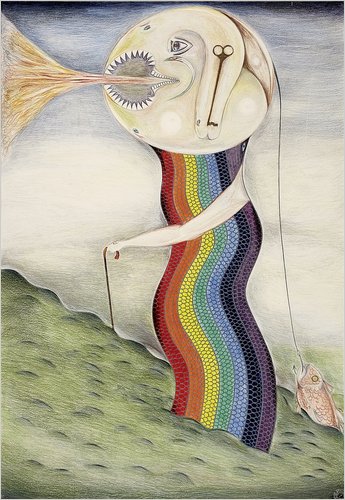Search This Blog
30.5.11
22.5.11
21.5.11
Fwd: Monbiot.com
From: George Monbiot <news@monbiot.com>
Date: 21 May 2011 08:06
Subject: Monbiot.com
To: heartofbalance@gmail.com
Monbiot.com |
| A Real-Time Experiment With Human Lives Posted: 20 May 2011 01:40 AM PDT We can now see what the impact of has been of the police decision to turn off Oxfordshire's speed cameras.
By George Monbiot, published on the Guardian's website, 20th May 2011 The experiment is over and the results are in. In April, Thames Valley police switched Oxfordshire's speed cameras back on. They had been off for eight months, as a result of the government's decision to cut the road safety grant. Then the police began assessing the damage. In the 31 days before the cameras were switched off (July 2010), the machines caught 2,286 speeding motorists. In the 30 days after they were switched back on, they caught 5,917. As many residents of the county complained, between July 2010 and April 2011, Oxfordshire became a racetrack. The effect of the switch-off seems to have been felt far from the camera sites: as soon as motorists received the message that they were unlikely to get caught speeding anywhere in the county, they appear to have felt empowered to drive recklessly everywhere. Or so a more important set of figures might suggest. In the eight months without cameras, there were 18 deaths on the roads in Oxfordshire, compared to 12 in the same period in the previous year. This was the first time the number of deaths on the county's roads had risen in four years. Serious injuries rose from 160 to 179. These are not just numbers: they are real people; some dead, some who will have to live with devastating injuries for the rest of their lives. Reading the contents of websites which celebrate excessive speed – pistonheads.com for example – you would think it was just a game: evading the police, vandalising cameras, using clever lawyers to avoid getting fined. It's not. The consequences are real and horrible. So far, the sample size is too small and the period too short to be sure that the deaths and injuries around the county are linked to the switch-off. The experiment would have to run for longer and be conducted over a wider area. Any volunteers? Perversely, there are plenty. Undeterred by the results of Oxfordshire's grisly experiment, Staffordshire has now switched off almost half its cameras, for the same reason: a lack of funds, caused by the government's determination to end the mythical construct it calls "the war on the motorist". What it is really doing is allowing speeding motorists to conduct a war against everyone else: cyclists, pedestrians, children on their way to school, other drivers. Worse still, the destruction of speed cameras by people who describe themselves as vigilantes continues unabated. Sixteen of Lincolnshire's 52 cameras, for example, have been destroyed by vandalism, in many cases by fire. In the Scottish borders, 19 have been burnt out since 2004. These acts are raucously celebrated on the boy racer sites. Here's what a spokesman for the Lincolnshire Road Safety Partnership had to say about one of these burnings:
So why are people burning cameras? Because journalists and others have promulgated a powerful and dangerous myth: that speed cameras are useless, and exist only to tax the public. It doesn't matter how often or how comprehensively this myth is disproved. A study for the Department for Transport, involving more rigorous scientific methods than those just deployed by Thames Valley Police, shows that 19% fewer people were killed or seriously injured at accident black spots after speed cameras were introduced, above and beyond the general decline in accidents on the roads. As for the stealth taxation story, the last figures I've seen, from 2010, suggest that the cameras cost slightly more to run than they make. The Treasury took £85-80m in revenues, with an outlay of £110m a year. This may have changed by now. (Why shouldn't reckless driving be taxed?). Yet speed cameras are a much cheaper means of preventing speeding than any other. The Department for Transport reports a cost-benefit ratio of 2.7:1. The House of Commons Transport Committee found that "a more cost effective measure for reducing speeds and casualties has yet to be introduced." But never mind the facts: the tabloid myth is what the people who have been snapped by the cameras want to hear. Instead of being a danger to the public, they are, journalists tell them, innocent victims of a government mugging. At times the press coverage is so extreme that it amounts to blatant incitement. Here's what Jeremy Clarkson wrote in the Sun in 2007. "As I drove down the M20 into Kent last Monday, I noticed that most of the speed cameras had been burned out by vandals. This is disgusting. It is ridiculous, criminal and stupid that the person who savaged these life-saving devices should target the M20 … and then stop. Why did you not keep right on going? I can think of six cameras on my way home that would be immeasurably improved with a spot of petrol and a match." (Source: Jeremy Clarkson, 21st July 2007. Speed cameras have been burned out by vandals. The Sun.) It looks like good clean fun, as Sarah Palin's placing of a gunsight over the state of Arizona did, until Gabrielle Giffords got shot. Incitement, particularly incitement which supports a false story that people want to hear, can have consequences. More insidious than Clarkson's have been the efforts of Christopher Booker, who, through a grossly misleading use of statistics, has tried to suggest that speed cameras make the roads more dangerous. Writing in the Telegraph with Richard North in 2007, he maintained that a sharp decline in the death rate on the roads suddenly slowed down in the mid-1990s. They attributed this to the government's attempt to enforce speed limits with cameras. But they failed to mention that deaths started falling sharply again in 2003, after the number of speed cameras had doubled in three years. Similarly, they tried to argue that there was no evidence that cameras have reduced deaths even at the spots where they are deployed, on the grounds that the government had failed to account for a statistical effect called regression to the mean. The truth, they maintain, is that "speed cameras actually increased" the rate of accidents. What they failed to tell their readers is that the government had accounted for regression to the mean, and still found an average reduction of 19% for collisions which caused deaths or injuries after speed cameras had been installed. I was reminded of this over the weekend, by Booker's pathetic attempt to justify yet another of his false claims in the Sunday Telegraph. Uniquely, as far as I can tell, two articles of his have been the subject of a long section of a High Court judgement, which damned his journalism as "unbalanced, inaccurate and just plain wrong." Like all propaganda that tells people what they want to hear, Booker's false claims are likely to change or reinforce people's behaviour. So are Clarkson's and those of all the other journalists who tell people that they can act as they wish, regardless of their impact on others. The rest of us have a duty to try to correct them. |
| You are subscribed to email updates from George Monbiot To stop receiving these emails, you may unsubscribe now. | Email delivery powered by Google |
| Google Inc., 20 West Kinzie, Chicago IL USA 60610 | |
15.5.11
The Birthday of Heart of Balance-Wesak-Moon in Scorpio-Praise to the Hawk-Headed Mystical Lord!
 The Mahayoga Godform of Ra Hoor Khuit by the artist Kat Lunoe.
The Mahayoga Godform of Ra Hoor Khuit by the artist Kat Lunoe.







